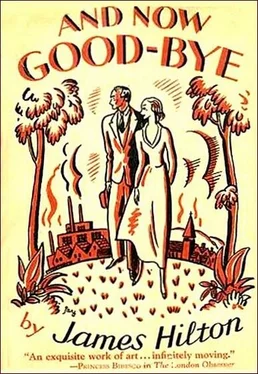And then, on top of it all, and in addition to that annoying three and ten-pence, came the thought of the morrow—the early rise, the walk through the dark streets to the station, bag in hand, the crawling local train, the ride across Manchester in a tram, the express to London, booking a room at a hotel, visiting the heating-apparatus people in the afternoon, then the appointment with the specialist, and after that, if she turned up, his meeting with that girl at Charing Cross. What a day! It was the last two items that seemed most to be feared, and perhaps even of the last two, the vision of the Wimpole Street consulting-room did not trouble him quite so much as the thought of what he would have to say to the girl. Yet he felt, with slow rage inside him: This is my real work, this job of saving souls—this one job which I shirk is the real thing I’m here for. All this other stuff, this parade of being busy that makes many a parson think he’s a success when he’s really only doing a clerk’s job—all this merely disguises the real issue—the fact that if I fail in this Garland affair, I fail utterly. These societies and clubs and meetings and such-like have been a veil hiding life from me and me from life; after all my years of ministerial work, I don’t know where I am when I’m faced with something out of the ordinary; I don’t understand the mainsprings of human conduct, probably not as well as young Trevis, certainly not as well as Ringwood or the Catholic priest…
Towards twilight he took his letters to the pillar-box, and after posting them walked along School Lane as far as the edge of the town, despite a light rain that was falling. The problem of what he should say to Elizabeth Garland and how he should persuade her to return to Browdley, was more than perplexing; it was beginning to be an obsession. All the so far known and meagrely reported ingredients of the affair danced before his mind like animated fragments of a jig-saw puzzle—the Raphael picture she had sent him, the fuss with Garland, her letter from London, and Trevis’s description of the fat little Jew fiddler with the bald head and the gold teeth. What was it that she or any girl could feel for such a man? Some kind of physical infatuation? But there once more he was in uncharted seas, wondering at the sort of desire that could so outweigh considerations of home, family, position, and morals.
He tried even to recollect his own desires, so far as he had ever been conscious of them; and, though he felt it almost sacrilegious to do so, he cast back in memory to his early days of courtship and marriage. Of course he had always loved his wife, and he was still, he would have said, ‘in love’ with her; but he recognised, nevertheless, that there was a fiercer passion that belonged peculiarly to youth. In his own life it had coincided with his ‘conversion’, and when he tried to think of those early days he had a vision of peaceful evening walks across fields to chapel, with Mary by his side; he could not, at such a distance in time, recollect exactly what had been his feelings during those walks, but he was quite certain that the course of true love, in his case, had been exceptionally smooth.
As for temptation of any kind since marriage, he could honestly and with confidence assert that he had never even known what it was; indeed, the mere contemplation of it was distasteful. Yet there was a world, he knew, in which unpleasant things of that sort did abound—a strange world in which Elizabeth Garland, for one, was dangerously adrift, and which lay pitilessly beyond the scope of all the societies of which he was president and secretary. He dared not, merely to preserve his own comfort, shirk total knowledge of that world; on the contrary, it might sometimes be his unpleasant duty to explore.
He went home for tea, and in the evening there was the weekly Brotherhood Meeting. His throat, which was definitely worse, gave him a good excuse for not attending, but he would not take it; he went, sang, spoke, and made his throat so painful that it kept him awake for half the night. In the early morning darkness of his bedroom he felt desperately afraid of all that the coming day might bring, and when at last he fell asleep and dreamed, his dreams were of restless, inexplicable things.
Chapter 5. Friday Morning and Afternoon
Unless on some definitely professional errand Howat always travelled in mufti. He did so quite openly, even sometimes when he went no further than Manchester, and though many of his colleagues in the town did not approve, the lay population were quite accustomed to seeing him dressed as one of themselves. “There’s something about a parson’s collar that puts people off,” Howat had once said to Doxley, of the Congregational Church, “especially in such a confined space as a railway compartment, where they have nothing to do but stare. It makes them uncomfortable among themselves, they feel under constraint with one another—they either talk at’ you, or else relapse into a brooding silence which you can feel to be anti-clerical. When I was a young fellow, just beginning, I used to wear the whitest and highest of clerical collars because I was so proud of my profession, but now I think I’m less proud of that than I am of my common humanity. I feel that if I’ve got to wear something that marks me out as different or superior to others, then in fairness to them I ought to travel first-class—like officers in the army.”
“But surely,” Doxley had said, “that argument would apply just as much against wearing the clerical habit at all, even in Browdley?”
“Not quite. In Browdley, I’m on business, as it were—my professional badge is as appropriate as a doctor’s black bag or a collier’s black face. But when I’m shopping, say, in Manchester, or on holiday at the seaside, then I’d feel as unseemly in my parson’s rig-out as a judge if he had to play golf in his wig and gown.”
“You mean that when you’re out of Browdley, you don’t want people to know what you are?”
“Well, I don’t see why I should fling my profession in their faces, anyhow.” Doxley always put Howat in the impish mood of the small boy who knocks at doors and then runs away; he had added, then, with a touch of that impishness: “I consider it an impertinence to approach strangers with a sort of label tied on to you saying—’ Beware! I’m not an ordinary person like you’.”
And as the Reverend Jefferson Doxley had never for a moment believed himself to be an ordinary person like anyone else, the argument had here tapered away into an infinite shaft of disagreement. Doxley had, however, said one thing that Howat afterwards remembered. “Well, Freemantle, whatever you say, you can’t deny that a parson’s collar does mean something to people; they look on it as a guarantee of character, even if they pretend to scoff at it. Take, for instance, the case of some timid, nervous girl walking alone along a country lane late at night. She sees a man approaching her in the distance, wonders who and what he is, begins to feel rather terrified, and then—suddenly—sees that collar. Don’t you think it’s a relief? She may be agnostic or an atheist or anything you like, but she knows she needn’t be afraid of meeting a parson in the dark.”
“It seems a rather negative tribute to parsons in general,” Howat had answered, still impishly. That conversation had taken place some half- dozen years before, since when Doxley had never wholly ‘approved of’ his brother minister; he suspected him, indeed, of being dangerously imbued with eccentric, undignified, and even socialistic ideas.
But now, on this Friday morning in November as the Manchester-London express raced over the plains of Northamptonshire, there could have seemed little eccentric, much less dangerous, in the quiet, tired-looking man who took lunch by himself at the far end of the dining-car. He had been sleeping for part of the journey, and there were lines beneath his eyes that made many a traveller, especially women, give him a fleetingly compassionate glance as they hurried along the centre aisle. There was something in his face that curiously attracted most people—a sort of rather sad winsomeness that made them feel they could rely on him for infinite depths of sympathy and understanding. Though, as a matter of fact, he did not always understand as well as they imagined; people often poured out intimate personal confessions to which his carefully kind attention was only a mask to cover up extreme uncomfortableness and a bewildered lack of comprehension.
Читать дальше











